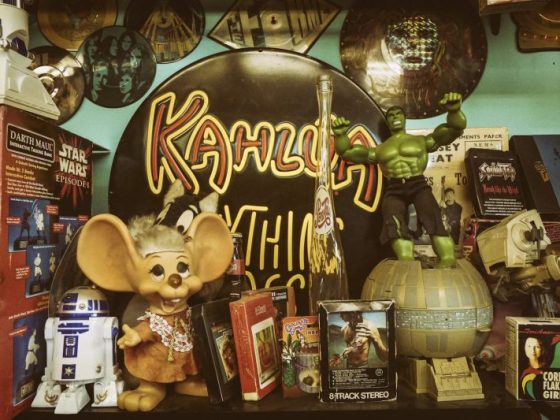Personalized gifts are popular for many special occasions, offering a thoughtful and unique touch to your presents. However, the rise of social media shopping has also increased scams targeting unsuspecting buyers. What seems like the perfect custom item at a great price can quickly turn into a frustrating and costly experience. Scammers find new ways to trick online shoppers, from disappearing sellers to fake product images. This blog will help you recognize the red flags when purchasing personalized gifts through social media. By keeping yourself informed, you can safeguard against scams and still experience the joy of shopping for gifts without worry. Let’s dive into the critical signs of a scam that you should watch.
7 Red Flags to Watch for When Purchasing Personalized Gifts Online
Red Flag #1: The Ad Seems Too Good to Be True
If you’ve ever scrolled through Instagram or Facebook and seen an ad that immediately caught your attention with a fantastic deal—whether it’s a 70% off sale or a “limited-time offer”—you might want to think twice. Ads that offer highly unrealistic discounts or promises hide a scam beneath the shiny exterior. Scammers lure customers in with steep discounts, knowing that most people are drawn to deals they can’t resist.
To avoid falling into this trap, it’s essential to be cautious when an ad promises unrealistic discounts. Research the seller and read reviews—if a deal seems too good to be true, it probably is. Verify the product’s price on other sites or the seller’s official website to confirm the claim. Many scams rely on people acting quickly out of excitement, but don’t let the urgency pressure you into making a hasty decision. Instead, take your time and evaluate the deal carefully. Remember, legitimate companies don’t need to rely on deceptive discounts to make a sale.
Red Flag #2: Shady Seller, Shady Website
Take a moment to evaluate the website you’re purchasing from before clicking the “Buy Now” button. Is it professional-looking, or does it appear hastily thrown together? A poorly designed site, full of broken links or lacking necessary information, is a common sign of a fraudulent business. Also, check for precise contact details like an email address or phone number. If you can’t find this information, or if it looks unprofessional (like a generic Gmail address), that’s another warning sign.
Scammers often use misleading URLs, so make sure the domain name matches the brand. Walking away and finding a legitimate retailer is safer if the URL seems off. Additionally, be wary of websites with no physical address or clear company information. A reliable business will always make it easy to contact them in case something goes wrong. If a website lacks transparency, it’s better to avoid the risk.
Red Flag #3: Missing Reviews (or All Positive Ones)
When looking at a personalized gift on social media, one of the first things you should do is search for reviews. Honest customer reviews can help you determine whether the business is reputable. If you find no reviews at all, or if all the reviews are excessively positive and lack accurate detail, that’s a huge red flag. It’s important to note that scammers can fake reviews, often creating fake profiles or paying for fabricated testimonials.
They may even make “review sites” that give glowing feedback, usually just ways to lure unsuspecting customers. To get a more honest picture, check third-party review sites or look for feedback on social media pages that aren’t tied directly to the store. If the only reviews you can find seem suspiciously perfect or too few, that should raise your alarm bells.
The absence of reviews or an overwhelming number of overly positive ones can indicate a scam. A trustworthy business usually features positive and negative reviews, providing a well-rounded perspective on what to expect. Search for reviews outside the website to verify the product’s and business’s legitimacy. Independent platforms and third-party sites can offer unbiased feedback. If all the reviews seem too good to be true, consider that someone might have fabricated them. Use caution and trust your instincts when a business shows no negative reviews or vague, generic praise. Don’t let glowing, unverified testimonials pressure you into making a purchase.
Red Flag #4: Contact Info Disappears
A trustworthy business should always make it easy for customers to contact them, especially if something goes wrong with your order. If a seller or website does not offer clear communication channels, or if you notice that their contact info disappears after you make your purchase, beware. This could mean that the seller has no intention of fulfilling your order or offering customer support should you have an issue. Many scam websites purposely make it difficult to contact them, knowing that customers won’t be able to reach out if there’s a problem with the order. Sometimes, sellers may also block or ignore messages on social media once they’ve taken your money.
Before making any purchase, verify that customer service is accessible and responsive. Check for a dedicated support page, and test communication methods to see how quickly they respond. If a seller is unresponsive or avoids answering questions, it’s time to reconsider your purchase. Reliable businesses should be transparent and easy to reach. If the contact info seems suspicious or disappears after your order, it’s a major red flag.
Red Flag #5: “Guaranteed” Delivery Never Arrives
Another common tactic scammers use is promising “guaranteed“ delivery dates or fast shipping. If a retailer promises that your personalized gift will arrive in three to five days but lacks a solid track record, take that promise with a grain of salt. Scammers often use this tactic to hook you into buying quickly, knowing they’ll never meet the delivery deadline. Once you place the order, they may delay shipping, offer a series of excuses, or vanish entirely in the worst case. Be wary of unrealistic delivery times, especially if the business has a small or obscure online presence.
Track your order and contact the seller if delays occur. If they fail to provide an update or offer an explanation, it’s a sign they may not intend to fulfill your order. Reliable businesses usually provide tracking information and will update you if there are any shipping issues. If the delivery time seems too good to be true, be cautious before purchasing. Scammers often promise fast shipping to rush you into buying, only to fail in delivering on their promises.
Red Flag #6: Phony Photos
Have you ever seen an ad for a personalized gift with absolutely stunning images? The photo may show an intricately designed necklace or a beautifully crafted leather wallet. It’s easy to get excited, but before you make a purchase, verify the legitimacy of the product images. Scammers often use stock photos or pictures stolen from other sites to make their products look more appealing than they are.
This is especially true for personalized items, where the product in the picture may not even exist. Compare the photos on the website with those on other websites. If the images are identical and appear on multiple different sellers’ pages, that’s a strong indicator that the business may not be what it claims to be.
Scammers can easily manipulate or steal product photos to create the illusion of a high-quality item. Don’t fall for overly polished, professional-looking images that seem too perfect. Verify the authenticity of the pictures by searching for them elsewhere or looking for user-generated content that shows real-life examples of the product. If the images are stock photos or appear on multiple sites, it’s a vital sign that the business isn’t selling what it promises. Personalized gifts should have unique product images that match the descriptions given. Trust your instincts and look closely at the photos before placing an order. If the pictures seem off, walk away rather than risk being scammed.
Red Flag #7: Unrealistic Personalization Options
Personalized gifts are meant to be unique, but when a seller offers too many customization options, you should be concerned. Scammers know that personalization adds value to a product, so they often go overboard with customization choices to make their offer seem too good to miss. For example, a website might offer every font, color, and engraving option. While this might seem tempting, it can be a tactic to lure in more customers without actually delivering a high-quality product. Scammers use this method to create an illusion of variety and customization without having the ability to follow through.
If the personalization options seem excessive or unrealistic, take a step back. Too many choices can mean the business is more interested in getting your money than creating a quality, personalized gift. Stick to shops offering reasonable options, ensuring the customization feels unique but manageable. Excessive personalization can indicate that the seller needs more focus and quality control. Always be cautious of shops offering endless choices that may never result in an appropriately crafted product.
The appeal of personalized gifts is undeniable—they feel thoughtful, unique, and memorable. However, the rise of online scams has made it essential to be cautious when buying these gifts, primarily through social media platforms. By keeping an eye out for red flags like unrealistic promises, shady websites, fake reviews, missing contact info, delayed deliveries, stolen photos, and excessive personalization, you can protect yourself from falling victim to fraud.
Have you ever had a bad experience buying personalized gifts online or spotted some red flags yourself? Share your story in the comments to help others avoid similar pitfalls and make safer purchases. Remember, it’s always better to research and stick to trusted retailers when shopping online. Shop safely, enjoy the process, and share this post with friends who can find these tips helpful.



